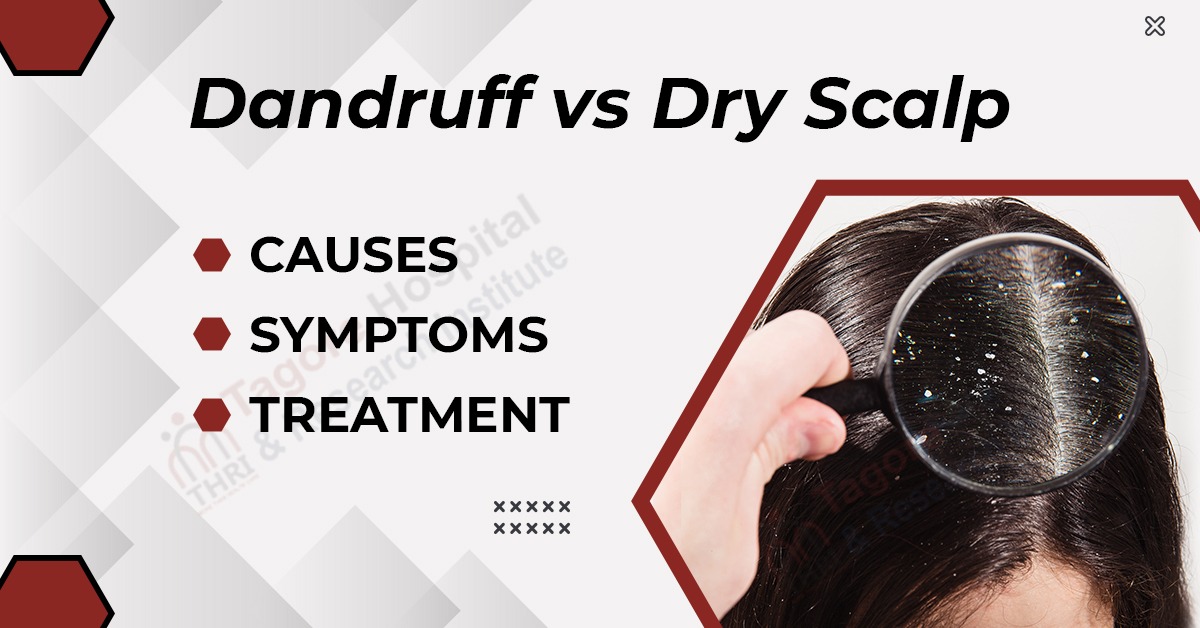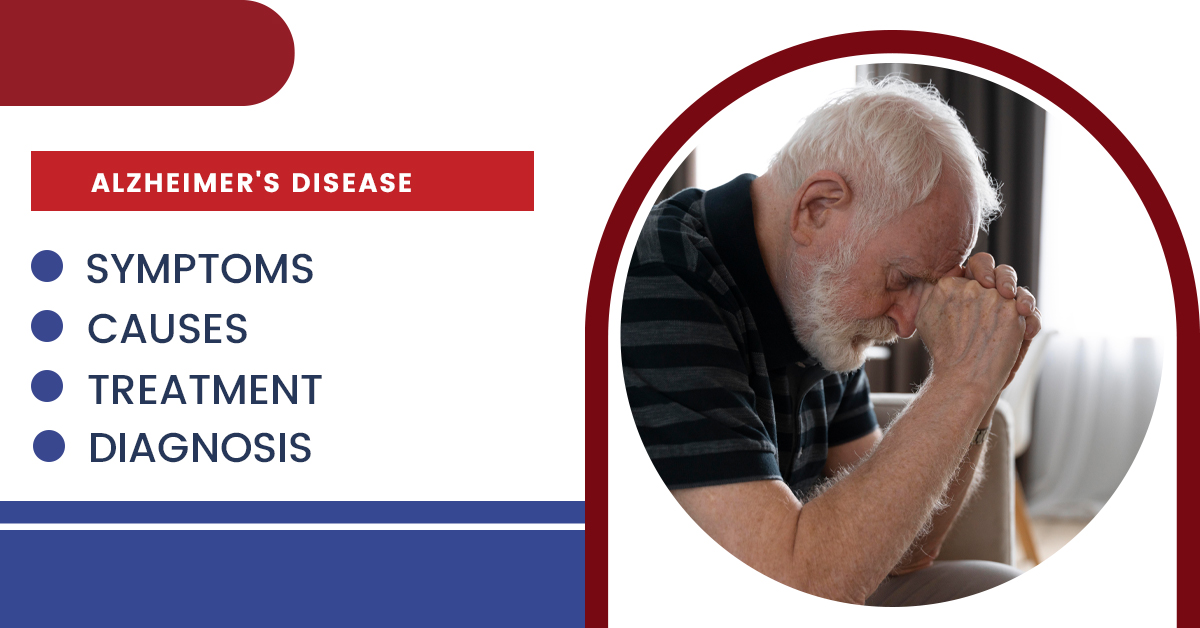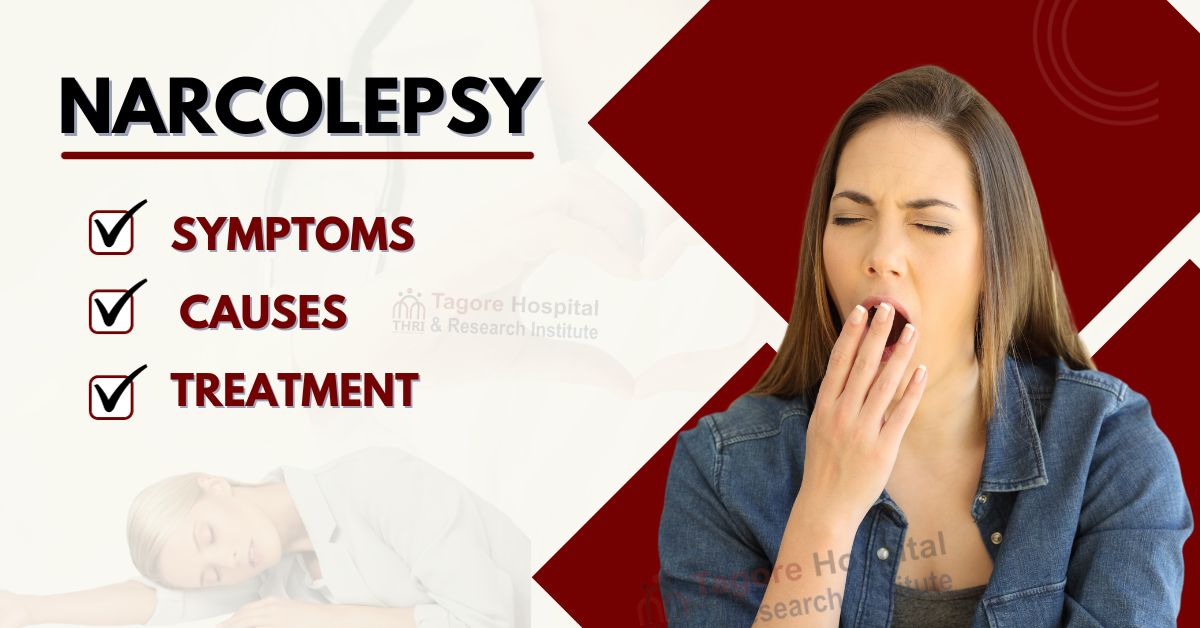- By THRI admin
- Posted March 24, 2023
Dandruff is brought on by an excess of oil on the scalp and an overabundance of Malassezia yeast, whereas a dry scalp is brought on by a lack of moisture in the skin. The symptoms of dandruff can be controlled using a specialist shampoo, but the condition cannot be treated.
You could think you have dandruff if your scalp is dry and flaky. Yet, it might be a sign of a dry scalp. Although falling flakes and an itchy scalp are the main symptoms of both dandruff and dry scalp, they are two distinct disorders.
Your skin becomes sensitive and flakes off when you have a dry scalp. The overproduction of the yeast Malassezia, which is already present on your skin, and an excessive amount of oil on your scalp are the two leading causes of dandruff. Skin cells accumulate due to the excess fat and then shed. Understanding which of these problems you have will enable you to receive the proper care and permanently get rid of those flakes.
Causes of Dandruff and Dry Scalp:
Causes of Dandruff:
Like any other area of your skin, the scalp exfoliates dead skin cells. When this procedure goes into overdrive, dandruff may result. Dandruff gets worse as your scalp sheds skin cells more quickly.
Exact causes still do not know what causes dandruff. The American Academy of Dermatology (AAD) speculates that there may be several contributing variables. This comprises:
- fungal infections
- sensitivity to certain hair products
- excessive scalp oil production
Another study from 2016 discovered a link between certain scalp bacteria and dandruff. But the additional study is required before we can be certain.
By the way, diseases like Parkinson's or others that damage the neurological system or immune may also make you more susceptible.
Dry scalp Causes:
When the epidermis on your scalp lacks sufficient lubrication or moisture, a dry scalp can result. Itching, discomfort, and flaking may result from this. Your hair may also appear extremely dry as a result.
Dry skin people are more likely to have dry scalps. The AAD states that certain factors may contribute to dry skin:
- Smoking cigarettes
- Dry or cold weather
- Diseases of the kidney, thyroid, or diabetes
- Infections affecting the immune system, such as HIV
- Skin conditions such as psoriasis, atopic dermatitis, and seborrheic dermatitis
Symptoms of Dandruff and Dry Scalp:
Symptoms like falling flakes and an itchy scalp are common to both dandruff and dry scalp. The flakes of dandruff, however, frequently have an oily texture. In contrast to dandruff, which is frequently noticed in persons with oily skin, a dry scalp is typically accompanied by other body parts with dry skin.
Some psychological signs of these issues include a tendency to undermine self-assurance and potential for anxiousness. Stress makes dandruff worse by itself, creating a vicious cycle. It may even start to produce depression in the most extreme situations.
Difference between Dandruff and Dry Scalp:
Even though the two scalp conditions are distinct from one another, they may be similar. Your scalp's skin can flake due to both dandruff and a dry scalp. The scalp will also become itchy and irritated from both.
It is challenging to distinguish between the two scalp conditions as a result. The main distinction between dandruff and a dry scalp is that the former is an infection of the scalp caused by a fungus, whereas the latter is a normal condition brought on by moisture loss on the scalp.
Typically, dandruff flakes are oily and larger, whereas dry scalp flakes are dry and smaller in size. People who have naturally dry scalps are less likely to develop dandruff than those who have naturally oily scalps.
When to see a doctor?
The majority of the time, dandruff and dry scalp can be treated at home. The appearance of dandruff can be a result of some scalp conditions.
For instance, scalp psoriasis results in redness, flakes, and itching but is brought on by an autoimmune condition. Seborrheic dermatitis, a severe form of dandruff, can result in excruciating pain and inflammation.
People with a flaky scalp should visit a doctor:
- If additional signs such as redness or sores are present
- If self-care measures are unsuccessful
- If there are facial or head wounds that are still open.
Before beginning a dandruff treatment regimen, people with autoimmune disorders and chronic illnesses should consult their doctor. A compromised immune system increases the likelihood that a scalp condition will rapidly deteriorate, and symptoms that resemble dandruff may be caused by another condition.
Treatment of Dandruff and Dry Scalp:
Dandruff treatment:
In comparison to a dry scalp, dandruff is usually a bit more difficult to treat. But no need to worry. There are still numerous excellent treatments available to expel those flakes.
The top components to look for in anti-dandruff products are listed below:
- The production of too many skin cells can be decreased by the natural antifungal property of coal tar. Simply keep in mind that coal tar can make you more sensitive to the sun. Try this shampoo: MG217 Psoriasis Medicated Conditioning 3% Coal Tar
- Dandruff brought on by a fungus (also known as yeast) can be treated with ketoconazole. Try: Nizoral AD AntiDandruff Shampoo
- Beta hydroxy acid salicylic acid works as a chemical exfoliant. It can remove too many dead skin cells. Try: CLn Healthy Scalp Shampoo
- Anti-infective properties of selenium sulfide. That essentially means it can reduce flaking and soothe scalp itching. Try: Selsun Blue Medicated Anti-dandruff Shampoo
- A complex that coordinates zinc is called zinc pyrithione. It can be used to treat seborrheic dermatitis and dandruff because it has antifungal, antimicrobial, and antibacterial properties. Try: DHS Zinc Shampoo
For Dry Scalp:
Since the main factor contributing to the skin's flaking and falling off on the dry scalp is dryness, it needs hydration and nourishment. You require a product that will nourish your scalp and hair while gently cleansing them to prevent dryness.
In comparison to a typical moisturizing shampoo alone, this 2-in-1 solution locks in moisture 75% better. Additionally, it has been shown to replenish the moisture in your scalp. Go completely dandruff-free.
Another good option for flake-free hair is Head & Shoulders Dry Scalp Care Shampoo and many others are also availavle. You'll see an improvement in your scalp's health after two weeks of consistent use. The dual-action formula with almond oil does an amazing job of reducing dry scalp and itching while adding extra conditioners to your hair.
Read also: Tips To Reduce Facial Hair Growth
Prevention of Dandruff and Dry Scalp:
Following these steps will help one avoid having a dry scalp:
- Exposure to cold and dry air should be avoided.
- Any products with harsh chemicals in them ought to be avoided. The reader must be aware of whether their skin is sensitive to any specific chemicals.
- Regular hair washing and shampooing are recommended.
- Maintaining proper hydration is important.
People with dry scalps are more likely to have dry skin elsewhere, so if that is the case, they should seek treatment for dry skin.
The following steps can be taken to manage or prevent dandruff:
- Taking regular showers or washing one's hair is advised.
- Use a shampoo with anti-dandruff ingredients that work for you.
- Several natural solutions are available for this purpose.
- The management of dandruff can be aided by altering one's lifestyle if they are experiencing stressful circumstances.
Tags





